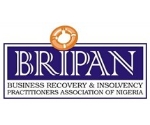Corporate Governance in Nigerian Companies: Best Practices and Legal Requirements
Introduction
Nigeria’s thriving economy and vast market potential have made it an attractive destination for foreign investors seeking opportunities in Africa. However, investing in Nigeria, like any other country, comes with its unique opportunities and challenges.
Understanding the Corporate Governance landscape in Nigerian companies is essential for foreigners looking to invest successfully.
This article will explore the best practices and legal requirements related to corporate governance in Nigerian companies (both private and public), providing foreign investors with the knowledge needed for a successful venture.
Understanding Corporate Governance in Nigeria
Corporate governance is the system by which companies are administered, directed, and controlled to ensure their long-term success. In Nigeria, corporate governance plays a crucial role in ensuring transparency, accountability, and ethical behavior within organizations. The purpose of corporate governance is to facilitate effective, transparent, and prudent management that will deliver the company’s long-term success and foster economic development.
Legal Frameworks and Recommended Best Practices
The main law and regulations that provide for and regulate Corporate Governance in Nigeria, are:
The Companies and Allied Matters Act (CAMA) 2020
The Financial Reporting Council Act – Nigerian Code of Corporate Governance (NCCG)2018
The Investment & Securities Act -Securities & Exchange Commission (SEC) Code of Corporate Governance 2011 & SEC Corporate Governance Guidelines
For the purpose of this article, our focus will be on The Companies and Allied Matters Act (CAMA) 2020 and The Financial Reporting Council Act – Nigerian Code of Corporate Governance (NCCG)2018.
The Companies and Allied Matters Act (CAMA) 2020
The CAMA 2020, being the primary legal framework governing companies in Nigeria, introduced several reforms aimed at enhancing corporate governance. Some of the key requirements include:
- Board of Directors: Companies in Nigeria (save single-member or small Companies) are required to have at least two directors and a board; this is to ensure that no single person is granted autonomy in decision-making and to guarantee transparency.
- Shareholder Rights, Meetings & Prohibition of Non-voting Weighted Shares: Shareholders have the right to receive notice of meetings and participate in the company’s decisions by vote. CAMA prohibits the issuance of shares with no voting rights to ensure all members can participate in the decision-making process.
- Transparency and Disclosure: Public Companies must disclose financial and non-financial information to the public, including annual financial statements, audit reports, and corporate governance reports in a clear, concise, and understandable manner, Directors of a public Company are also required to disclose issues like age and multiple directorships or interests.
- Establishment of Audit Committee: Companies are required to appoint an auditor or establish an audit committee to ensure the integrity of financial reporting, internal controls, and compliance with relevant laws and regulations.
- Fiduciary Duty & Whistleblower Protection: The Companies and Allied Matters Act 2020 emphasizes the duty of Directors to observe utmost good faith and encourages the establishment of a framework for reporting unethical behavior and violations of any law or policy to an internal or external authority in both private and Public Companies
The Financial Reporting Council Act – Nigerian Code of Corporate Governance (NCCG)2018
The Financial Reporting Council (FRC) in 2018 released the Nigerian Code of Corporate Governance (NCCG) which seeks to institutionalize corporate governance best practices in Nigerian companies.
The NCCG 2018 is applicable to all sectors of the economy as the following entities are mandated to adopt and comply with the NCCG 2018:
- all public companies (whether a listed company or not);
- all private companies that are holding companies of public companies or other regulated entities;
- all concessioned or privatized companies; and
- all regulated private companies being private companies that file returns to any regulatory authority other than the Federal Inland Revenue Service (FIRS) and the Corporate Affairs Commission (CAC).
Some of the principles recommended for best Corporate Governance practice in the NCCG 2018 are:
- Board of Directors: Every Company is expected to have a Board that will be responsible for providing entrepreneurial and strategic leadership, exercising oversight and control to ensure management acts in the best interest of shareholders and other stakeholders. Public Companies must ensure that the board of directors has enough independent directors who can provide impartial oversight. Companies are also encouraged to promote diversity on their respective boards in terms of gender, age, skills, and experience, bringing different perspectives and expertise to the company.
- Independent Non-Executive Directors: Applicable Companies must ensure that the Board has independent Non-Executive Directors who can bring a high degree of objectivity and impartial advisory to the Board in order to encourage stakeholder trust and confidence.
- Regular Board & Statutory Meetings: Companies are advised to hold regular (at least once every quarter) documented board meetings to discuss strategy, performance, and risk management.
- Board Committees: Companies are encouraged to establish audit, remuneration, and nomination committees whose composition should comprise of Directors with relevant skills and competencies for focused oversight and management. It is also expected that there should be balanced distribution of power in respect of membership across the committees so that no individual has the ability to dominate decision making.
- Risk Management: The Board is expected to develop a robust risk management framework and regularly review and update risk management policies. Membership of the risk management committee is also expected to include Executive Directors and majorly Non- Executive Directors.
- Regular Internal and External Audits: Companie should conduct regular audits and engage independent external auditors for transparency. Such external auditor will provide independent opinion on the true and fair view of the financial status of the Company in order to give assurance to stakeholders on the reliability of the financial statements.
It is important to note that the Nigerian Code of Corporate Governance (NCCG)2018 replaced all existing sectorial Codes of Corporate Governance in Nigeria and as such is applicable to all sectors.
In summary, investing in Nigerian companies offers tremendous opportunities for foreign investors. By understanding and adhering to the legal requirements and best practices related to corporate governance, foreign investors can harness Nigeria’s economic potential while contributing to its growth and ensuring a successful venture.
If you would like to know more about corporate Governance or the appropriate governance structure for your Company, please contact info@berkeleylp.com
The information provided in this article is for general informational purposes only and does not constitute legal advice.







